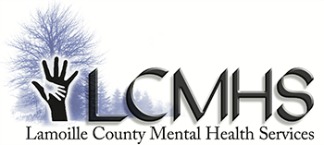Know the Warning Signs
Know the warning signs, as they are indicators that someone may be suffering and it is time to take action and get the necessary help for them. Many people suffer from mental health issues at one time or another affecting their thinking, mood, and behavior. Mental health issues can develop in a child, an adolescent, or in an adult. According to MentalHealth.gov, “mental health includes our emotional, psychological, and social well-being. It affects how we think, feel, and act. It also helps determine how we handle stress, relate to others, and make choices, at every stage of life.”
Many different factors contribute to mental health problems but if you know the warning signs you will be prepared to get the help you or someone you know needs. According to the National Alliance on Mental Illness, “trying to tell the difference between what expected behaviors are and what might be the signs of a mental illness isn’t always easy. There’s no easy test that can let someone know if there is a mental illness or if actions and thoughts might be typical behaviors of a person or the result of a physical illness. Each illness has its own symptoms, but common signs of mental illness in adults and adolescents can include the following list:”
- Excessive worrying or fear
- Feeling excessively sad or low
- Confused thinking or problems concentrating and learning
- Extreme mood changes, including uncontrollable “highs” or feelings of euphoria
- Prolonged or strong feelings of irritability or anger
- Avoiding friends and social activities
- Difficulties understanding or relating to other people
- Changes in sleeping habits or feeling tired and low energy
- Changes in eating habits such as increased hunger or lack of appetite
- Changes in sex drive
- Difficulty perceiving reality (delusions or hallucinations, in which a person experiences and senses things that don’t exist in objective reality)
- Inability to perceive changes in one’s own feelings, behavior or personality (“lack of insight”)
- Abuse of substances like alcohol or drugs
- Multiple physical ailments without obvious causes (such as headaches, stomach aches, vague and ongoing “aches and pains”)
- Thinking about suicide
- Inability to carry out daily activities or handle daily problems and stress
- An intense fear of weight gain or concern with appearance
“WARNING SIGNS that your CHILD might have a mental health condition”, according to the Mayo Clinic include:
- “Mood changes. Look for feelings of sadness or withdrawal that last at least two weeks or severe mood swings that cause problems in relationships at home or school.”
- “Intense feelings. Be aware of feelings of overwhelming fear for no reason — sometimes with a racing heart or fast breathing — or worries or fears intense enough to interfere with daily activities.”
- “Behavior changes. These include drastic changes in behavior or personality, as well as dangerous or out- of-control behavior. Fighting frequently, using weapons and expressing a desire to badly hurt others also are warning signs.”
- “Difficulty concentrating. Look for signs of trouble focusing or sitting still, both of which might lead to poor performance in school.”
- “Unexplained weight loss. A sudden loss of appetite, frequent vomiting or use of laxatives might indicate an eating disorder.”
- “Physical symptoms. Compared with adults, children with a mental health condition might develop headaches and stomachaches rather than sadness or anxiety.”
- “Physical harm. Sometimes a mental health condition leads to self-injury, also called self-harm. This is the act of deliberately harming your own body, such as cutting or burning yourself. Children with a mental health condition also might develop suicidal thoughts or attempt suicide.”
- “Substance abuse. Some kids use drugs or alcohol to try to cope with their feelings.”
In addition, the National Alliance on Mental Illness (NAMI) indicate that “because children are still learning how to identify and talk about thoughts and emotions” the warning signs are going to look more behavioral in nature. These symptoms may include: “changes in school performance, excessive worry or anxiety, hyperactive behavior, nightmares, disobedience or aggression, temper tantrums”.
Many people don’t know where to go for help and therefore don’t get the treatment needed to make them better.
To find an agency near you visit https://vermontcarepartners.org/agencies/ or call VT Care Partners at 802-223-1773.
###
A collaboration of the Vermont Care Partners’ statewide network of sixteen non-profit community-based agencies providing mental health, substance use, and intellectual and developmental disability services and support.
To Find an Agency Near you visit: https://vermontcarepartners.org/agencies/
Suicide Prevention Lifeline: 800-273-8255, www.suicidepreventionlifeline.org, Text VT to 741741
Vermont 211: Dial 2-1-1 anywhere in Vermont or visit www.Vermont211.org to get live referral help.



